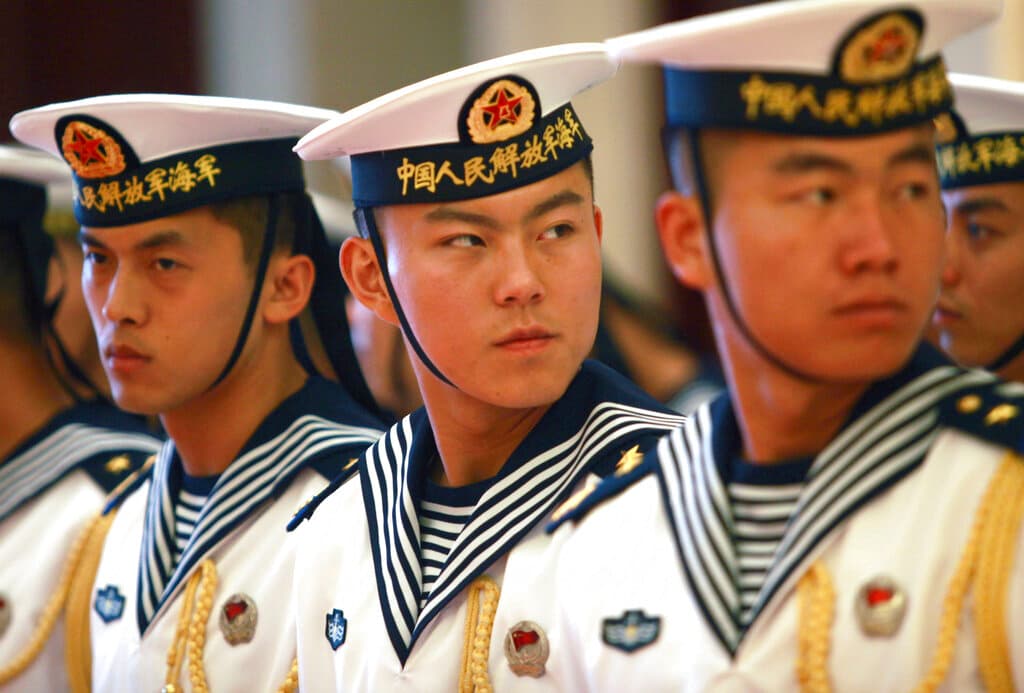Red China Scores a Win in South Pacific as Tiny Tuvalu Votes Out a Prime Minister Who Favors the Republic of China on Taiwan
World’s second smallest state, population 11,500, catches the attention of the superpowers.

Score a win for Communist China in the contest between Washington and Beijing for the south Pacific. The pro-Taiwan prime minister of Tuvalu, the world’s smallest nation in population other than the city state of the Vatican, has lost his seat in the microstate’s 16-member parliament.
The outgoing prime minister of Tuvalu, Kausea Natano, has advocated maintaining diplomatic relations with the Republic of China that rules the island province of Taiwan. He faced strong opposition from the finance minister, Seve Paeniu, who won reelection on a platform calling for “review” of Tuvalu’s relationship with Taiwan.
While Americans focus on their own presidential election in November, the outcome of the voting in tiny Tuvalu might be easy to miss as Communist China extends its reach over the vast ocean between Australia and Hawaii. “Embracing One-China principle ‘inevitable trend of times,’” gloated the Chinese propaganda paper Global Times. Tuvalu “mulls severing ‘ties’ with Taiwan.”
A Tuvalu envoy, said the paper, had reported that Tuvalu might follow the example of another south Pacific nation, Nauru, which switched recognition after the election this month of Lai Ching-te as president of the Republic of China. The People’s Republic of China has strongly opposed Mr. Lai, who has said Taiwan is a “sovereign” entity.
To Beijing, the switch by Nauru, whose population of 12,704 ranks one notch ahead of Tuvalu’s 11,500 citizens, represents a diplomatic triumph in its rivalry with Washington in a region for which America’s armed forces fought some of World War II’s bloodiest battles.
“Nauru recognizes that there is only one China in the world,” said the foreign minister of one of the two Chinas, Wang Yi of the People’s Republic. He and Nauru’s foreign minister, Lionel Aingimea, in an elaborate ceremony in Beijing, signed a joint statement proclaiming “Taiwan is an inalienable part of China’s territory.”
The State Department cautioned that Communist China “makes promises in exchange for diplomatic relations that ultimately remain unfulfilled.” Taiwan thundered that Beijing, inveigling nations to switch recognition, was retaliating against “democratic values.”
Mr. Paeniu left the impression that the incoming government of Tuvalu “would need to look at the matter and decide its policy position accordingly.” His uncle, Tuvalu’s ambassador to Taiwan, shocked Taiwan by quoting “sources in Tuvalu” saying Tuvalu might switch recognition just as Nauru had done.
Mr. Paeniu could count on the support of Tuvalu’s former prime minister, Enele Sopoaga, also elected to the parliament, who opposes a treaty with Australia that would give the Aussies the power to nix any deal on defense with China.
The outcome of the election was a serious disappointment to the Republic of China, which has diplomatic ties with only a dozen countries, including two other south Pacific microstates, Pulau, population about 23,000, ahead of Nauru, Tuvalu and the Vatican as the world’s fourth smallest country, and the Marshall Islands, population about 53,000, the world’s eighth smallest.
The Taiwan Times quoted Taiwan’s ambassador to Tuvalu, Andrew Lim, as dismissing rumors of “shaky Taiwan-Tuvalu ties.” Communist China seeks “to oppress Taiwan by spreading disinformation,” Mr. Lim was quoted as saying.
In Washington, a State Department spokesman said Nauru’s transfer of recognition to Beijing was “disappointing,” preferring to forget it was President Carter who decided in December 1978 to recognize Beijing rather than Taipei. Washington and Taipei have large non-diplomatic missions in each other’s capitals — a way to carry on as usual while President Xi vows eventually to take over the lost province.
Stepping up its rivalry with the People’s Republic of China for regional power and influence, Washington has also adopted a “Pacific Islands Strategy” that calls for setting up or expanding missions in a number of the southern Pacific microstates.
“The foundation of our approach to the Pacific remains strong and productive bilateral and regional collaboration with the Pacific Islands, and listening and responding to Pacific priorities,” said the State Department. Washington counts on the Australia, United Kingdom, U.S. alliance, for defense against Communist Chinese military moves.

